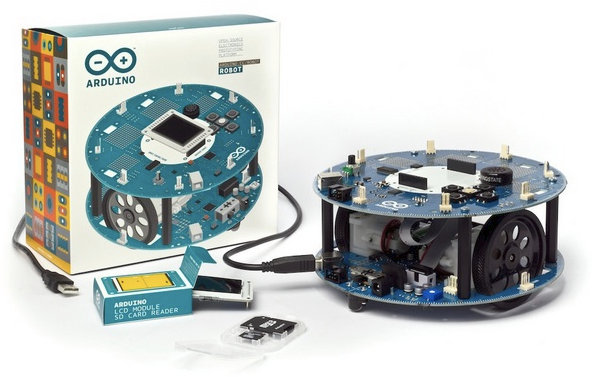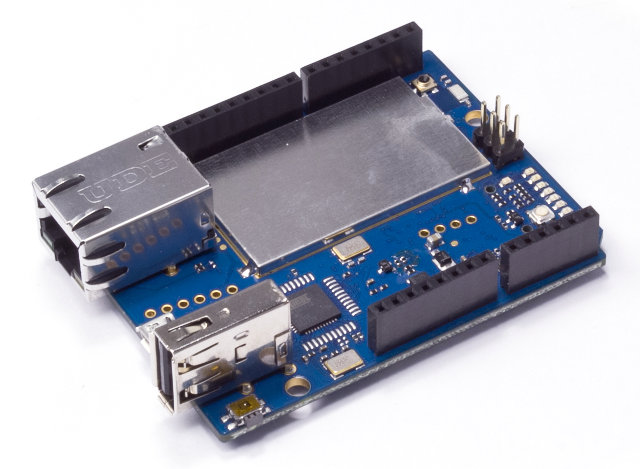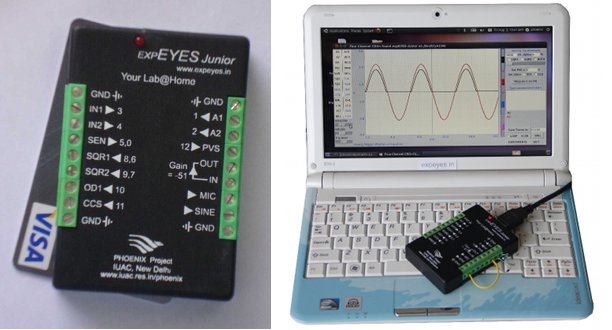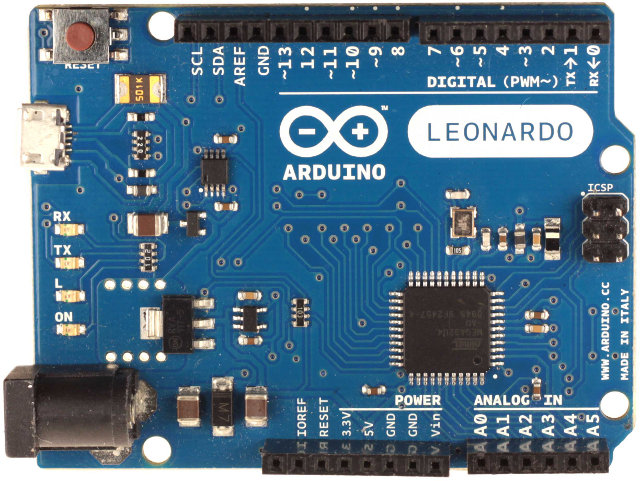Souliss is an open-source framework written in C/C++ for the Internet of Things and home automation that runs on Arduino boards, or other Atmel AVR MCU based boards, and let your control lighting, heating, or anything else you can think of via your Android device, or switches connected to your board(s). You can get started with Souliss in 3 steps: Getting the building blocks, for example: Arduino, Olimex, or other AVR boards (See list of supported boards) Relay boards ON/OFF Switches, Lights, etc… Wi-Fi router Download and load Souliss to an AVR powered board controlling real things such as lights. Monitor and/or control via Souliss Home Automation App for Android. A detailed getting started guide is provided on Souliss Google Code page. Internally, the framework is composed of three parts: Souliss, an application level layer, MaCaco, a communication protocol and vNet, a transport layer. I’ll skip details in this post, […]
Arduino Unveils the Arduino Robot at Maker Faire
On top of announcing its first Linux powered board, Arduino also announced its first official robot at Maker Faire Bay Area called “Arduino Robot”. The robot comes with 2 wheels and two boards: The Motor Board controlling the motors. The Control Board reading sensors and deciding how to operate. Each board, based on Atmel ATmega32u4 MCU, is programmable like any other Arduino board using the Arduino IDE. Control board specifications: MCU – Atmel ATmega32u4 @ 16 MHz with 32KB flash, 2.5KB SRAM, and 1KB EEPROM External Storage – 512 Kbit EEPROM (I2C) + SD card reader for FAT16 formatted cards Display – Full color LCD over SPI communication I/O interfaces: 5x Digital I/O Pins 6x PWM Channels 4x Analog Input Channels (of the Digital I/O pins) 8x Analog Input Channels (multiplexed) Misc – 5 keys keypad, Knob potentiometer attached to analog pin, 8 Ohm speaker, digital compass “Playground” – 3x I2C […]
$69 Linux Powered Arduino Yún Board is Designed for the Cloud
Massimo Banzi announced the Arduino Yún, the first of a family of Wi-Fi products combining Arduino with Linux, at the Maker Faire Bay Area. The company used the name Yún (云), meaning “cloud” in Chinese, as the purpose of this board to allow connection to web services directly from Arduino. Arduino Yun Specifications: MCU – Atmel ATMega32u4 @ 16 MHz (same as the one used in Leonardo board) with 2.5KB SRAM and 32KB flash SoC – Atheros AR9331 MIPS-based Wi-Fi SoC running Linino, Arduino’s own Linux distribution based on OpenWRT. It’s the same chipset as in TP-Link WR703N router. Storage – microSD card slot USB – micro USB connector + full USB host port Connectivity – Ethernet + Wi-Fi 14 digital input/output pins (of which 7 can be used as PWM outputs and 12 as analog inputs) Arduino Yún ATMega32u4 can be programmed as a standard Arduino board by plugging it […]
$35 expEYES Junior Transforms the Raspberry Pi, Aakash2 Tablet or any Linux Powered Device into an Electronics Lab
I remember in high school in France, our class only had 2 oscilloscopes and few other electronics equipment, needless to say I did not actually get to use an oscilloscope until I went to university. It would have been nice to be able to play around with oscilloscopes, frequency generators, etc… earlier, but due to budget constraints, this was not possible. Dr Ajith Kumar, a scientist working with the Inter University Accelerator Centre of India, has spent several years working on an ultra low cost electronics lab composed of an oscilloscope and a signal generator to provide students attending schools that cannot afford regular equipments. This learning & experimentation tool is called expEYES, and a prototype was demonstrated last year with the Raspberry Pi. At the end of last year, the final version called expEYES Junior (aka expEYES 2.0) was announced, and is now available to schools and hobbyists in […]
16 Euros Arduino Leonardo Board is Now Available
Arduino Leonardo is a new Arduino board with a 16 MHz Atmega32U4, 2.5KB RAM, 32 KB of Flash memory, 20 digital I/O, 12 analog inputs and 7 PWM outputs. In this version the MCU takes care of USB communication with the host, whereas for Arduino Uno, a separate chip is required to take care of this, which makes Arduino Leonardo cheaper than Uno. Here’s a summary of Arduino Leonardo specifications: Microcontroller – Atmel ATmega32u4 @ 16 MHz SRAM – 2.5 KB onchip (ATmega32u4) Flash Memory – 32 KB onchip (ATmega32u4) of which 4 KB used by bootloader EEPROM – 1 KB onchip (ATmega32u4) Operating Voltage – 5V Input Voltage – (recommended) 7-12V | (limits) 6-20V Digital I/O – 20 pins PWM – 7 channels Analog Input – 12 channels DC Current per I/O Pin – 40 mA DC Current for 3.3V Pin – 50 mA Watch the video to get […]
Atmel Unveils AVR XMEGA C, tinyAVR ATtiny1634 and AVR UC3 L3/D4 MCUs
Atmel announced 14 new Atmel AVR microcontrollers divided into 4 families: AVR XMEGA C, tinyAVR ATtiny1634, AVR UC3 L3 and AVR UC3 D4. Atmel AVR XMEGA C MCUs Atmel AVR XMEGA C MCUs are 8-/16-bit general-purpose MCUs with Full-Speed USB, 12-bit ADC, up to 384 KB flash and 32 KB SRAM. They can support Atmel QTouch Library for implementation of capacitive buttons, sliders and wheels functionality. The AVR XMEGA C MCUs consume 700nA in sleep mode with RTC. There 8 new XMEGA C MCUs which target consumer, industrial and home automation applications such as thermostats with display, building and climate control, utility meters with RF and ZigBee connectivity. The smallest XMEGA C MCU (ATxmega16C4), which comes in 44-pin package and has 16KB device, is the cheapest AVR XMEGA device with USB provided by Atmel. You can find further information on Atmel AVR XMEGA C page. Atmel tinyAVR ATtiny1634 MCU Atmel […]







